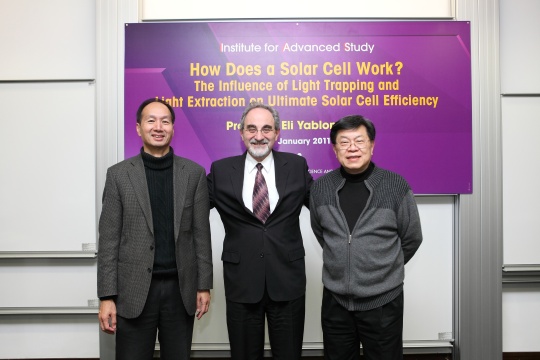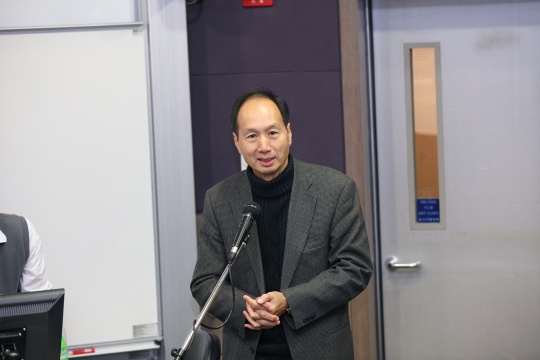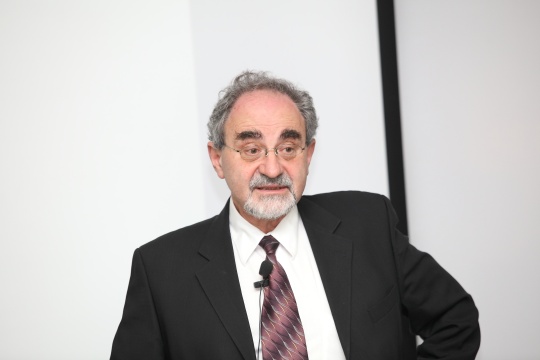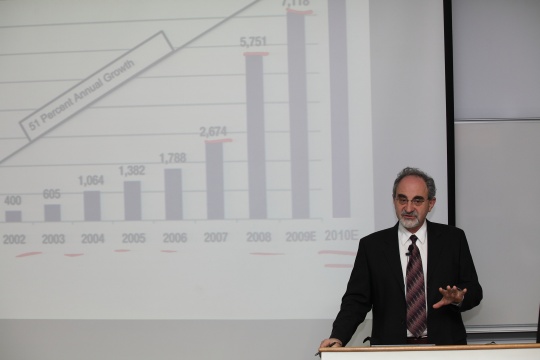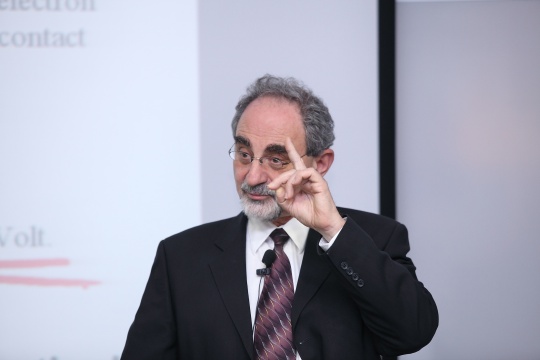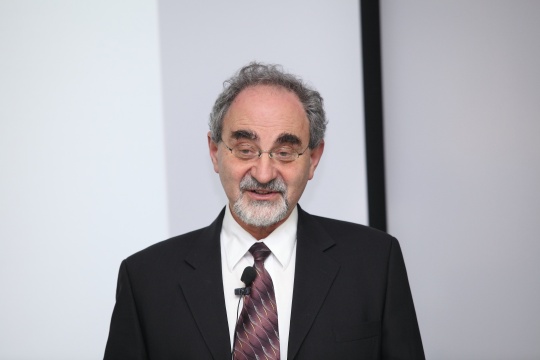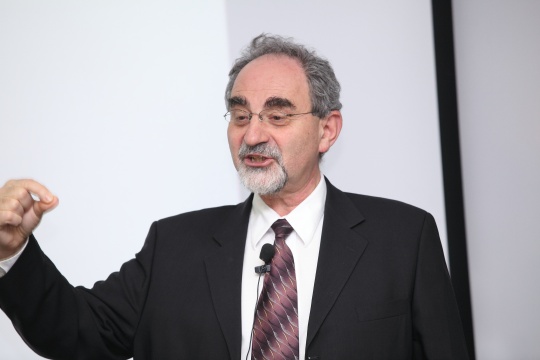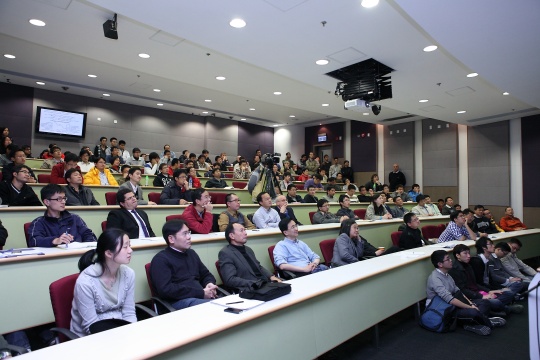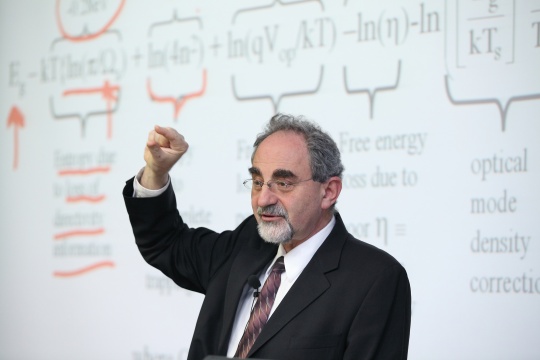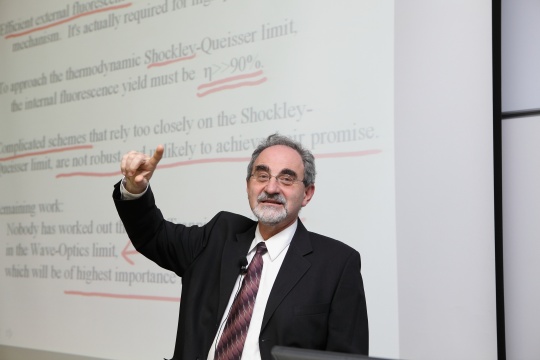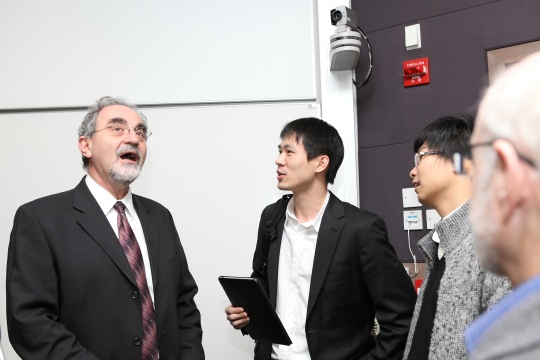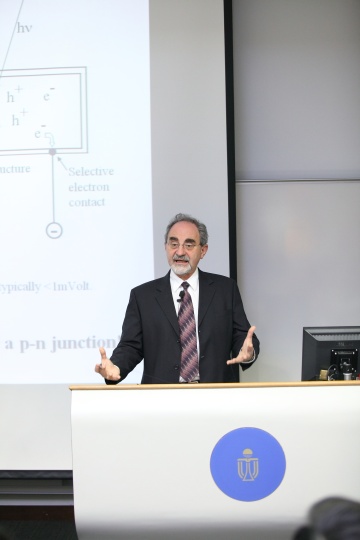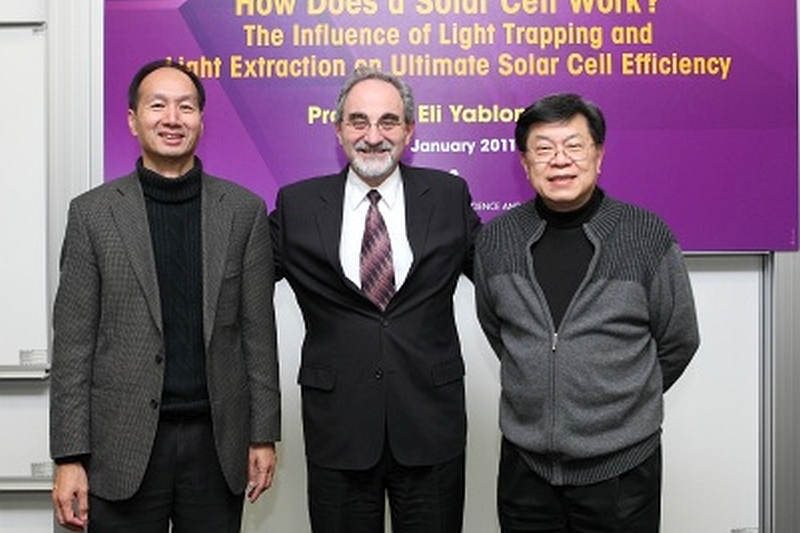How Does a Solar Cell Work? The Influence of Light Trapping and Light Extraction on Ultimate Solar Cell Efficiency
Abstract
With continual progress in solar cells, we are now approaching theoretical efficiency limits. As the efficiency rises, photon management becomes more important than electronic transport properties. The theoretical Shockley-Queisser efficiency limit implicitly assumes perfect extraction of luminescent photons from the semiconductor film. We know from Light-Emitting Diodes, that this is actually very difficult to achieve. A very good solar cell also needs to be an excellent LED.
About the speaker
Prof. Yablonovitch received his PhD in applied physics from Harvard University in 1972. He has worked at Bell Telephone Laboratories, Exxon and Bell Communications Research, where he was Director of Solid-State Physics Research and began his work in photonic crystals. Before joining University of California at Berkeley as Professor of Electrical Engineering and Computer Sciences in 2007, Prof. Yablonovitch had also taught at Harvard University and University of California at Los Angeles. Prof. Yablonovitch's work has covered a broad variety of topics: nonlinear optics, laser-plasma interaction, infrared laser chemistry, photovoltaic energy conversion, strained-quantum-well lasers, and chemical modification of semiconductor surfaces. Currently his main interests are in optoelectronics, high speed optical communications, high efficiency light-emitting diodes and nano-cavity lasers, photonic crystals at optical and microwave frequencies, quantum computing and quantum communication. In 2003, Prof. Yablonovitch was elected member of both the US National Academy of Engineering and US National Academy of Sciences. He is also a Fellow of the Institute of Electrical and Electronic Engineers, the Optical Society of America, and the American Physical Society. He has been awarded the Adolf Lomb Medal, the W. Streifer Scientific Achievement Award, the R.W. Wood Prize, and the Julius Springer Prize.

